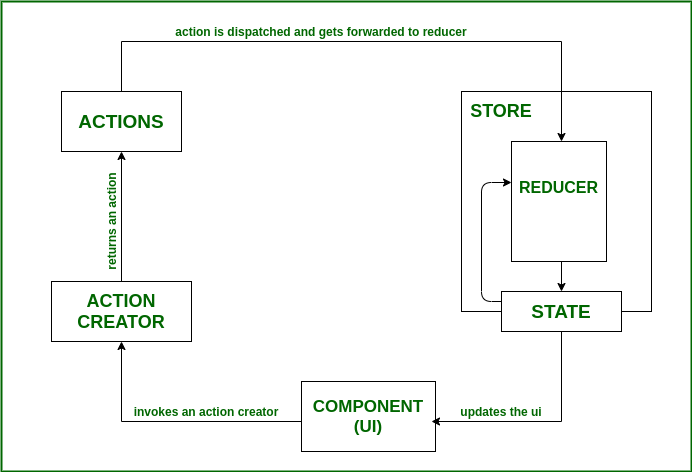useState and useEffect
useState and useEffect are both hooks used in React, a JavaScript library for building user interfaces.
useState is a hook that allows you to add state to a functional component. State is a way of storing and managing data within a component. With useState, you can declare a state variable and a function to update that variable. Every time the state variable is updated, React will re-render the component and update the UI.
import React, { useState } from 'react';
function Counter() {
const [count, setCount] = useState(0);
const incrementCount = () => {
setCount(count + 1);
};
return (
<div>
<p>Count: {count}</p>
<button onClick={incrementCount}>Increment</button>
</div>
);
}
useEffect is a hook used for side effects in React. Side effects are actions that happen outside of the normal flow of the component, such as fetching data, subscriptions, or manually manipulating the DOM. useEffect allows you to perform these side effects after the component has rendered.
import React, { useState, useEffect } from 'react';
function Example() {
const [count, setCount] = useState(0);
useEffect(() => {
document.title = `Count: ${count}`;
}, [count]);
return (
<div>
<p>Count: {count}</p>
<button onClick={() => setCount(count + 1)}>Increment</button>
</div>
);
}
class and interface
class create object with attribute and method. They facilitate code organization, encapsulation, and reusability through inheritance and polymorphism.
class Car {
brand: string;
constructor(brand: string) {
this.brand = brand;
}
accelerate(speed: number) {
console.log(`${this.brand} is accelerating at ${speed} km/h.`);
}
}
const myCar = new Car('Toyota');
myCar.accelerate(100);
inteface Interfaces in TypeScript define contracts for objects, specifying the structure of their properties and methods without providing implementation details.
interface Animal {
name: string;
makeSound(): void;
}
class Dog implements Animal {
name: string;
constructor(name: string) {
this.name = name;
}
makeSound() {
console.log(`${this.name} barks.`);
}
}
const myDog = new Dog('Buddy');
myDog.makeSound();
useStore() and mobx
store is where all the state of the application is stored. It contains important data and provides methods to change and access this data
MobX is a state management library for JavaScript applications. It simplifies state management by using the observer pattern and automatically tracking state changes to update the user interface.
import { makeAutoObservable } from 'mobx';
// Define a store
class CounterStore {
count = 0;
constructor() {
makeAutoObservable(this); // Automatically generate state management functions
}
increment() {
this.count++;
}
decrement() {
this.count--;
}
}
// Create an object from the CounterStore class
const counter = new CounterStore();
// Perform operations on the state
counter.increment();
counter.decrement();
Redux
Redux is a predictable state container for JavaScript apps. It helps in managing the state of your application in a predictable way, which is especially useful for larger applications with complex state management

Store
- The Store holds the global state of the application.
- It allows access to the state via
getState(). - State can be updated using
dispatch(action). - You can subscribe to changes using
subscribe(listener).
import { createStore } from 'redux';
import rootReducer from './reducers'; // Your root reducer
const store = createStore(rootReducer);
Actions
- Actions are plain JavaScript objects that represent what happened.
- They are dispatched to update the state.
- Actions typically have a
typeproperty that describes the action being performed. - They can optionally carry additional data in the
payload.
const incrementCounter = () => ({
type: 'INCREMENT_COUNTER'
});
const decrementCounter = () => ({
type: 'DECREMENT_COUNTER'
});
Reducers
- Reducers are pure functions that specify how the application's state changes in response to actions.
- They take the current state and an action, and return a new state.
- They should not mutate the state, but return a new state object.
const initialState = {
counter: 0
};
const counterReducer = (state = initialState, action) => {
switch (action.type) {
case 'INCREMENT_COUNTER':
return { ...state, counter: state.counter + 1 };
case 'DECREMENT_COUNTER':
return { ...state, counter: state.counter - 1 };
default:
return state;
}
};
export default counterReducer;
TypeScript Basics
Variables and Data Types
let num: number = 10;
let str: string = "Hello, TypeScript!";
let bool: boolean = true;
let arr: number[] = [1, 2, 3];
let obj: { name: string, age: number } = { name: "John", age: 30 };
let func: (x: number, y: number) => number = (x, y) => x + y;
Functions and Arrow Functions
function add(x: number, y: number): number {
return x + y;
}
const multiply = (x: number, y: number): number => x * y;
Interfaces and Types
interface Person {
name: string;
age: number;
}
type Point = {
x: number;
y: number;
}
Arrays and Tuples
let numbers: number[] = [1, 2, 3];
let tuple: [string, number] = ["apple", 10];
Classes and Inheritance
class Animal {
constructor(public name: string) {}
makeSound(): void {
console.log("Some sound");
}
}
class Dog extends Animal {
constructor(name: string, public breed: string) {
super(name);
}
makeSound(): void {
console.log("Woof!");
}
}
const dog = new Dog("Buddy", "Labrador");
dog.makeSound(); // Output: Woof!
Advanced TypeScript Concepts
Generics
function identity<T>(arg: T): T {
return arg;
}
const result = identity<string>("Hello");
Enums
enum Direction {
Up,
Down,
Left,
Right,
}
const move = (direction: Direction) => {
switch (direction) {
case Direction.Up:
console.log("Moving Up");
break;
case Direction.Down:
console.log("Moving Down");
break;
case Direction.Left:
console.log("Moving Left");
break;
case Direction.Right:
console.log("Moving Right");
break;
default:
console.log("Unknown direction");
}
};
move(Direction.Left);
Type Assertions
let someValue: any = "this is a string";
let strLength: number = (someValue as string).length;
Type Inference
let num = 10; // TypeScript infers 'number' type
Decorators
function Log(target: any, key: string) {
console.log(`${key} was called`);
}
class Calculator {
@Log
add(x: number, y: number): number {
return x + y;
}
}
const calc = new Calculator();
calc.add(2, 3); // Output: add was called